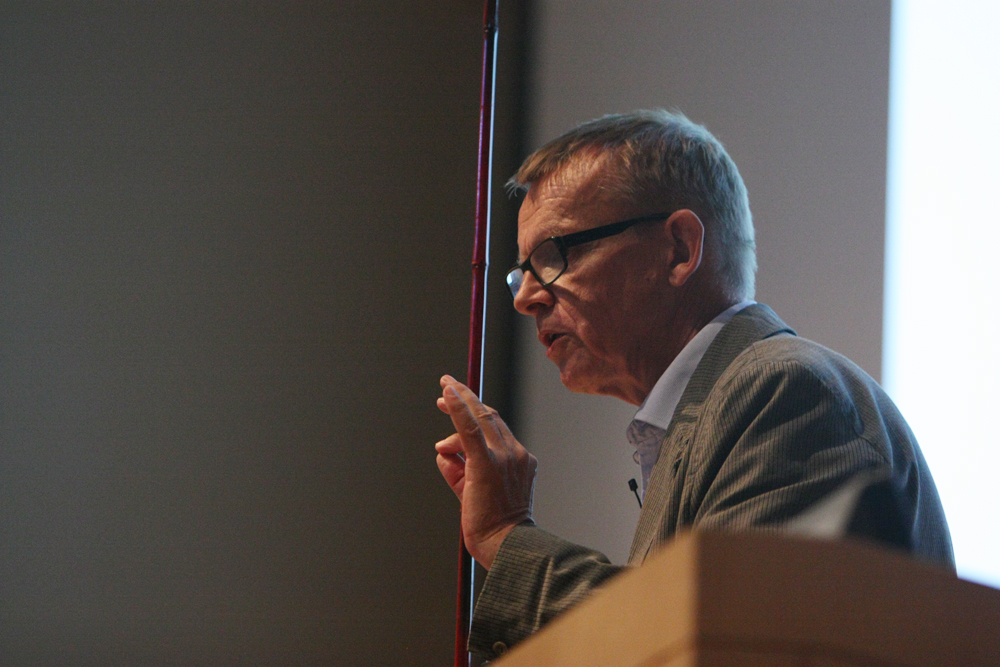By TALIA JUBAS
Global health expert and statistician Hans Rosling debunked common notions about the “developing world” and urged attendees in the packed Statler Auditorium to become aware of shifting realities.
“When we talk about the world, we are full of emotion,” he said. “We don’t start with facts — this is the problem.”
 Swedish medical doctor Hans Rosling speaks about the developing world and global demographics during a lecture Tuesday. (Michelle Feldman / Sun Senior Editor)
Swedish medical doctor Hans Rosling speaks about the developing world and global demographics during a lecture Tuesday. (Michelle Feldman / Sun Senior Editor)
Rosling, a professor of global health at Sweden’s Karolinska Institute, founded Gapminder — a non-profit venture — to make data readily and freely accessible to the public and to “promote a fact based worldview,” according to the foundation’s website.
Rosling began his presentation — which made heavy use of his foundation’s technology — by posing questions about the current state of the world.
Audience members responded to the questions, which ranged from the general economic health of today’s populations to reproductive trends to female education rights, via clicker devices. The audience responses were then compared to national averages from various European countries and the United States.
As Rosling reviewed the audience’s responses, he pointed out where there seemed to be an ingrained bias or a faulty conception of the world. When the audience did worse than they would have if they answered randomly, Rosling suggested that there was probably something else at play.
“If you score less than random, it means that the problem is not lack of knowledge — there must be some preconceived idea that stops you from reaching random,” he said.
These misconceptions are problematic given the changing nature of demographics, Rosling said.
Rosling showed demographic predictions that over the next century, Africa’s population will increase three- or four-fold, whereas the “Old West” — a label he uses for Western Europe and North America — will comprise less than ten percent of the world population.
“This is a big identity change for North America and West[ern] Europe,” he said.
While some important landmarks and facets of these countries — such as important research institutions — will remain, Rosling said these countries “will have to do completely new work” to adapt to an evolving world.
A misunderstanding of the facts of a situation can lead to baseless conclusions, according to Rosling.
“We cannot be obsessed that we need numbers on everything,” he said. “Sometimes we have to act upon [an issue] without numbers.”




